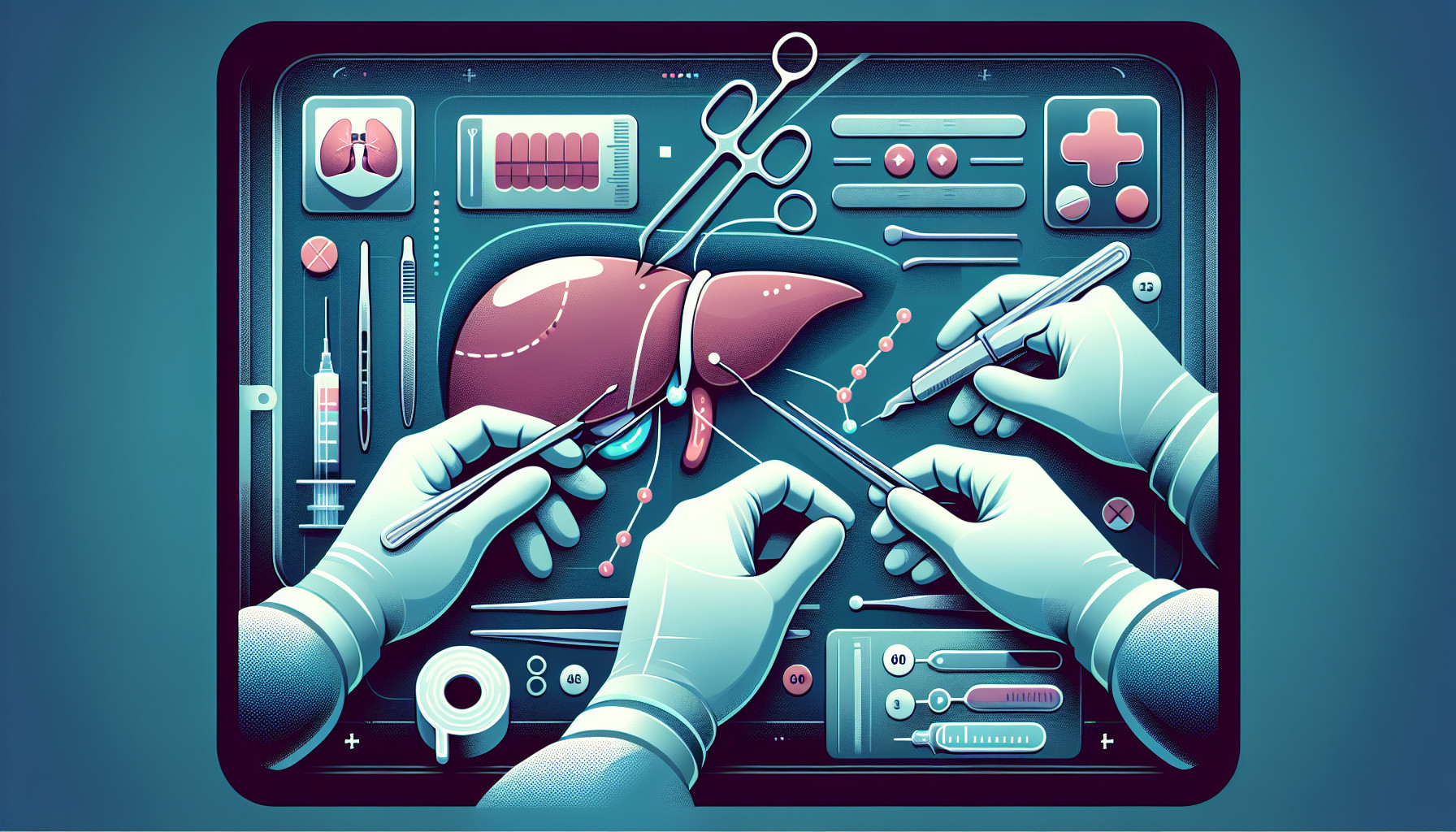Our Summary
Liver biopsy (LB) is a vital procedure for diagnosing and managing liver diseases. However, its importance has been questioned recently. This study aimed to investigate the current role of LB in diagnosing liver diseases. It examined all patients who had a liver biopsy at the National Liver Institute’s Department of Hepatology from January 2015 to December 2018.
The study included 275 patients (191 men and 84 women) with an average age of 41.22 years. The reasons for their liver biopsies, their pathology reports, and their medical records were all analyzed.
The liver biopsies helped diagnose a range of liver diseases, including 48 cases of drug-induced liver injury, 42 cases of nonalcoholic fatty liver disease, 34 cases of chronic hepatitis B or C with cholestasis, 29 cases of autoimmune hepatitis, 34 cases of primary sclerosing cholangitis, 13 cases of primary biliary cholangitis, 7 cases of autoimmune overlap syndrome, 13 cases of active bilharziasis, and 10 cases of Wilson’s disease. A smaller number of cases were diagnosed with other types of liver diseases.
The liver biopsy was the initial diagnostic method and was confirmed by the patients’ clinical response and laboratory findings. The study concluded that liver biopsy remains the best way to diagnose different liver diseases and is a critical part of decision-making in liver disease management.
FAQs
- What is the role of liver biopsy in diagnosing liver diseases?
- What were the most common diagnoses made through liver biopsies in this study?
- Is liver biopsy still considered the gold standard for diagnosing different liver diseases?
Doctor’s Tip
One helpful tip a doctor might tell a patient about liver biopsy is to follow any pre-procedure instructions carefully, such as fasting before the procedure and avoiding certain medications. This will help ensure the biopsy is successful and minimize any potential risks or complications. Additionally, it is important to discuss any concerns or questions with your healthcare provider before the procedure to ensure you are well-informed and prepared.
Suitable For
Patients who are typically recommended for liver biopsy include those with suspected drug-induced liver injury, nonalcoholic fatty liver disease, chronic hepatitis B or C with cholestasis, autoimmune hepatitis, primary sclerosing cholangitis, primary biliary cholangitis, autoimmune overlap syndrome, active bilharziasis, and Wilson’s disease. Other less common etiologies may also warrant a liver biopsy for accurate diagnosis and management decisions. Liver biopsy remains the gold standard diagnostic measure for a variety of liver diseases, providing valuable information for treatment planning and monitoring.
Timeline
Before liver biopsy:
- Patient presents with symptoms of liver disease such as jaundice, abdominal pain, fatigue, or abnormal liver function tests
- Patient undergoes various diagnostic tests such as blood tests, imaging studies, and possibly a liver ultrasound or CT scan
- Hepatologist reviews patient’s medical history, physical exam, and test results to determine the need for a liver biopsy
- Informed consent is obtained from the patient explaining the procedure, risks, and benefits
After liver biopsy:
- Patient is prepped for the procedure and given local anesthesia to numb the area
- A small needle is inserted into the liver to collect a tissue sample
- Patient may experience mild discomfort or pain during the procedure
- Tissue sample is sent to the pathology lab for analysis
- Results of the biopsy are typically available within a few days to a week
- Hepatologist reviews the pathology report to make a definitive diagnosis and determine appropriate treatment plan
- Patient may experience mild discomfort or bruising at the biopsy site after the procedure
- Follow-up appointments are scheduled to discuss the biopsy results and next steps in the patient’s care plan.
What to Ask Your Doctor
- What is the specific reason for recommending a liver biopsy in my case?
- What are the potential risks and complications associated with a liver biopsy?
- How should I prepare for the liver biopsy procedure?
- How long will it take to get the results from the liver biopsy?
- What information will the liver biopsy results provide about my liver condition?
- Will the liver biopsy results change my treatment plan or management of my liver disease?
- Are there any alternative diagnostic tests or imaging studies that could provide similar information to a liver biopsy?
- How frequently will I need to undergo liver biopsies in the future to monitor my liver condition?
- Are there any specific instructions or restrictions I should follow after the liver biopsy procedure?
- Are there any specific signs or symptoms I should watch for after the liver biopsy that would require immediate medical attention?
Reference
Authors: Ehsan NA, Elsabaawy MM, Sweed DM, Karman EA, Abdelsameea E, Mohamed AA. Journal: Clin Exp Med. 2023 Feb;23(1):97-105. doi: 10.1007/s10238-022-00797-1. Epub 2022 Mar 9. PMID: 35262836
